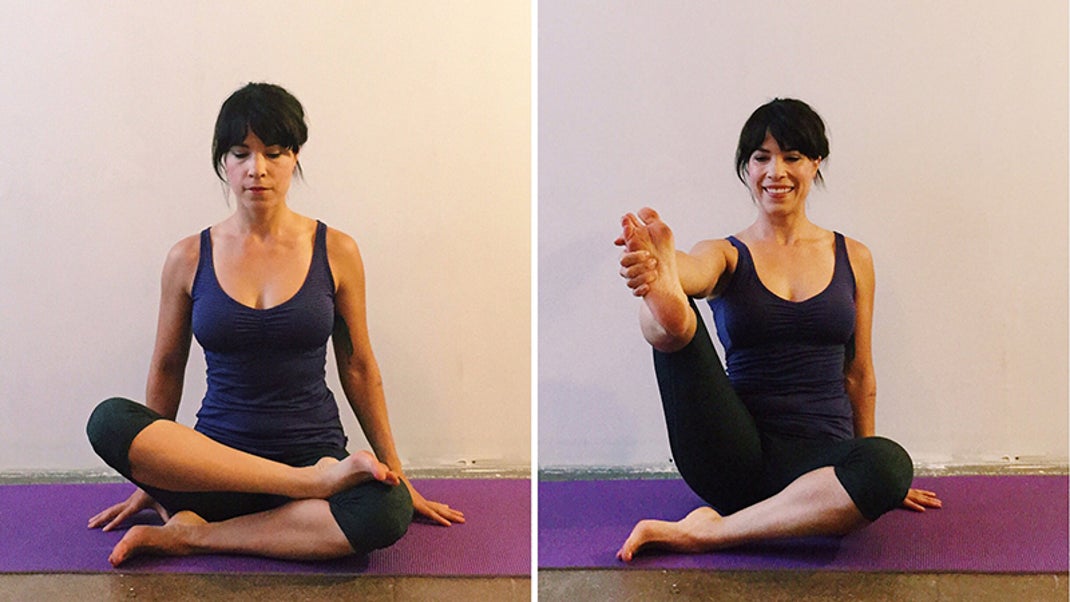CorePower Yoga teachers are trying to unionize for the second time in CorePower’s history. CorePower has been accused of mistreating its employees, but CorePower claims that they treat their employees well. Corepower yoga teachers have requested a free and fair election system by the National Labor Relations Board (NLRB). Corepower is refusing to cooperate with this request because it will cost them too much money to comply with these demands.
CorePower Yoga (CPY), the largest yoga chain in the U.S. with more than 200 studio locations, faces a familiar challenge as a nationwide coalition of the company’s yoga instructors attempt to unionize for a second time.

There is discord among CorePower teachers throughout the country as they mobilize around shared grievances. The first unionization effort dates back to 2019, when CorePower Yoga instructor Effie Morgenstern attempted to start a CorePower teachers’ union in Illinois, an initial effort that saw little traction and resulted in a labor lawsuit instead. A group of 2,180 CPY instructors had claimed they were not fairly compensated for all hours worked—a violation of Illinois state and federal law, of which a $1,492,500 settlement was paid by the company.
The unionization movement saw a recent resurgence following the murder of George Floyd when CorePower Master Trainer Joel Klausler posted a photo of a flower with the caption “I can breathe” on Instagram, which was met with outrage and was quickly removed. This incident of systemic racism was not an isolated one within the company, according to former CorePower Yoga instructor and studio manager Leana Marshall, and it was exactly the catalyst a growing coalition of dissatisfied CPY instructors needed to attempt to unionize again—this time, nationwide.
Marshall, who has taught at CorePower locations in Hawaii, Atlanta, and most recently DC, says she now feels she can speak freely without being “blacklisted by the company,” as she’s since been laid off due to the pandemic. “I was always labeled as the angry Black woman because I was trying to stand up for things that we’re right,” Marshall says, adding that despite Atlanta’s cultural diversity, there were few members on staff at the Atlanta location who looked like her.
Like Marshall, all CPY instructors and staff were laid off as studios across the country closed in recent months. But as some studios in select states began to reopen, instructors were asked to reapply to their jobs and audition again. In Atlanta, only 35 instructors of 90 have since been hired back, Marshall says. Across the country, 600 of the company’s 2,500–3,000 instructors have been rehired, says Atlanta-based Samantha Winkelmann, who’s been with CorePower for five years.
(CorePower could not be reached to confirm this.) “The revitalized unionization movement includes a bold move to form a nationwide teachers’ union and a petition to the company demanding that certain changes to long-standing practices be made before teachers can feel safe to return to work, of which nearly 2,000 people (CPY employees and the public) have signed on.
The petition, which is directed to CorePower Yoga CEO Niki Leondakis and to TSG Consumer Group CEO Chuck Esserman (TSG is the private equity firm that backs CorePower), would foster a more equitable workplace by including better representation of racial diversity on staff, a reform of employee pay structure, the “decolonizing” of CPYS’s teacher training program, and more.
The CPY teachers’ reform platform aims to address the company’s reputation for its alleged discriminatory practices, as well as address restructuring of the payment system to include a fair minimum wage, a growth bonus that increases periodically, instructor raises, an anniversary raise for managers, and secure benefits for staff members like health insurance, accrued paid time off, and maternity/paternity leave for all instructors regardless of hours worked.
If successful, a teachers’ union would bargain for a number of workers’ rights similar to those bargained for by the YogaWorks teachers that had mobilized in the state of New York. Only in this case, CPY instructors have a larger goal of not only unionizing state-by-state but creating a universal teachers union that would protect their rights across the country. As of now, CPY instructors in Georgia, Texas, Arizona, Illinois, Virginia, Maryland, Ohio, California, Hawaii, and others have joined the CPY teachers’ coalition to mobilize as a union.
The teachers’ coalition has begun the process of seeking representation by the International Association of Machinists and Aerospace Workers (IAMAW), the same organization that the YogaWorks teachers who voted in favor of unionization had been working with. Following the permanent closure of YogaWorks remaining NY studios in April, the Machinists’ Union was able to help YogaWorks NY teachers negotiate a severance package—a first for the company, and a win for their teachers’ union.
CorePower’s Response to Unionization
Much like YogaWorks, CorePower has encouraged its employees not to unionize, stating that the costs associated with a union could hinder the company’s ability to overcome the economic hurdles of the COVID-era. An internal email sent on behalf of the CorePower’s executive team from Chief Yoga Officer Heather Peterson on July 15 that was obtained by Yoga Journal asked CPY employees not to sign union cards.
“A union would bring many costs and risks that we don’t think are necessary. The union can make a lot of promises that they may or may not be able to deliver. They also require dues, sometimes as much as $35 a month that you would have to play along with the possibility of strikes, work stoppages, or other activities that directly affect you and likely our students. A union has no such aspiration. Their goal is to expand membership and make a profit from our employees’ union dues,” Peterson wrote in the email.
Most labor unions in the United States are considered 501(c)(5) nonprofits, including the Machinists’ Union.
Kelsey Comstock, a public relations representative on behalf of CorePower provided Yoga Journal with the following statement:
CorePower Yoga’s goal is to provide an environment where our instructors feel supported, heard, and free to share their passion for yoga and our community. CorePower’s leadership has been actively listening to the feedback shared by employees and we are working diligently to address their concerns. We are conducting a comprehensive evaluation of our business in response to the changing environment. In addition to the work, we’re doing to safely reopen our studios, in the past month we have formed a diversity and inclusion council and engaged with outside experts to make meaningful changes in our hiring, training, and employment practices to better diversify our company and culture. We are committed to listening to our employees and making long-term, sustainable changes.
While a “diversity and inclusion council” seems like a positive step forward, Marshall says that a past attempt by the company to provide diversity and inclusion training was abandoned. Marshall says she and Mindy Duster, the Senior Manager of People and Culture had ongoing conversations from March through June of 2019 on the importance of diversity and inclusion training and was assured that this was something the company needed and that it was coming. But months past and the training never happened. Following Klausler’s Instagram post, Marshall says she reached out to CPY’s executive team (Leondakis, Peterson, Duster, and CPY HR Director Lisa Bachica) on June 2, 2020, and it was explained to her that the training had been put on the back burner to “prioritize the yoga.”
“My hope is that CPY is listening and hearing the cry of everyone in the organization,” Marshall says. And as CPY instructors continue to mobilize in greater numbers, it would seem that CorePower is listening. Peterson’s email stated that the board of directors met recently to discuss improvements to employee wages and “other incentives,” which will be shared at a town hall in the near future. “We think that they are a fair compromise of what you have asked for and will help move us forward in our shared journey to ensure that you feel heard, respected, and fairly compensated,” Peterson wrote.
With so many dissatisfied employees across the board, many teachers are struggling with whether to stay or go. “I’m still teaching there and it’s very difficult to keep pushing forward—but the students and the community make it hard to leave,” says Atlanta-based Samantha Winkelmann, who’s been with CorePower for five years and, like Marshall, is a founding member of the national CPY reform.
As coronavirus cases continue to peak around the U.S., many CorePower locations remain closed. For now, the company is offering its classes and teacher training online. No studio locations have closed permanently, though many that have reopened have had to close again for the safety and health of students and staff. Marshall and Winkelmann say that one of their biggest concerns in the reform movement is to ensure the safe reopening of studios during the pandemic.
Other CorePower Lawsuits
The instructor’s reform movement isn’t CorePower Yoga’s only concern in recent months. The company, which generates over $100 million in annual revenue and is funded by TSG Consumer Partners, a private equity firm that manages $9 billion in assets, faces another pair of lawsuits. CPY recently tried to back out of a $23 million dollar deal the company made with Chris Kenny of Level 4 Yoga who owns 34 CorePower Yoga locations. Kenny filed a lawsuit against CorePower on April 3 after the company attempted to rescind its offer to buy the locations, citing economic concerns due to the COVID-19 pandemic.
That same month, Erin Weiler, a member of CorePower Yoga since February 2020, filed a class-action lawsuit on behalf of herself and others similarly situated on the allegation that the company continued to charge her credit card $169 per month in fees despite that studios remained closed during the pandemic.
The lawsuits, coupled with instructors’ move to unionize nationwide, could mark a pivotal moment for the company. And Marshall, despite her skepticism, is hopeful. “This organization has a very loud voice in the yoga community and could make all of the difference,” she says.
Conclusion:
CorePower Yoga is facing a number of lawsuits and the CorePower Yoga teachers have begun to unionize.




